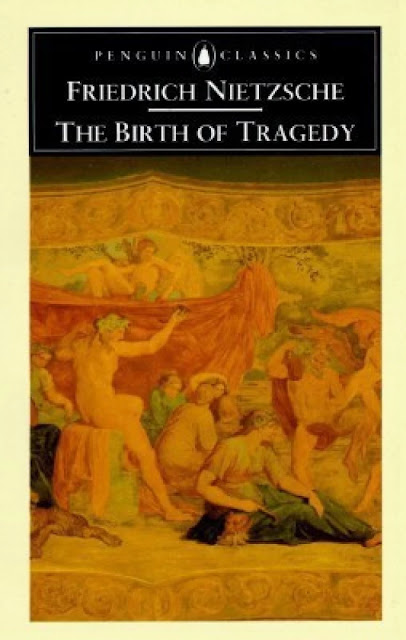Clotilde Venner's answers to the Nietzsche Academy Questionnaire
Source: http://nietzscheacademie.over-blog.com/2023/10/clotilde-venner.html
The widow of historian Dominique Venner (a Nietzschean par excellence), Clotilde Venner studied philosophy and is the author, with Antoine Dresse, of the book A la rencontre d'un coeur rebelle. Entretiens sur Dominique Venner, published by La Nouvelle Librairie (to order: https://nouvelle-librairie.com/boutique/biographie/a-la-rencontre-dun-coeur-rebelle-entretiens-sur-dominique-venner/ ).
- Nietzsche Académie: How important is Nietzsche to you?
- Clotilde Venner: Although I studied philosophy, I don't think I understood him until I was 40. It took me a certain maturity to understand him from the inside. What I appreciate about Nietzsche is his reading of the Greek world, which he renewed and rebalanced magnificently. In fact, throughout the Middle Ages and the Classical Age, the Greeks were essentially seen as the Logos, rational reasoning, whereas the Greeks, under the influence of the Pre-Socratics and the Tragics, put intellectual reasoning and vital energy on an equal footing. Nietzsche makes us love and understand the Greeks.
The other aspect of his thought that I appreciate is the importance he attaches to the body, not in the current hedonistic and narcissistic sense, but in the sense that we cannot dissociate the body from the soul. When we take care of our soul, it is by no means a superficial or vain activity: "How must you nourish yourself to reach your maximum strength, virtue, in the sense given to this word by the Renaissance, virtue free of morality?", in Ecce Homo. For me, he is the thinker of vital energy, and that's what I like most about him. He also wrote in The Genealogy of Morals: "our ideas are not rooted in our reason, but in us, in our body, in our flesh, in our deepest being".
- Nietzsche Académie: What does it mean to be Nietzschean?
- Clotilde Venner: It means constantly wanting to surpass yourself, to rise above yourself, not to be content with being what you are or what others would like you to be. It's being driven by an inner tension that pushes us to create. Dominique [Venner]'s Homerian triad magnificently expresses this spiritual impulse that comes to us from the Greeks: nature as the foundation, excellence as the goal, beauty as the horizon.
- Nietzsche Académie: Which of Nietzsche's books would you recommend?
- Clotilde Venner: My two favourite books are The Birth of Tragedy and The Twilight of the Idols.
- Nietzsche Académie: Is Nietzscheism right-wing or left-wing?
- Clotilde Venner: Neither. Nietzsche's aristocratic ethic is far removed from the ideas of the left, whether socialist or Marxist. And also from the right, especially if it's liberal.
- Nietzsche Académie: Which authors do you consider to be Nietzschean?
- Clotilde Venner: I can think of three authors whom I like very much. The first is Dr Alexis Carrel, who won the Nobel Prize for Medicine in 1912. His reflections on the body, health and what causes the physical and mental decadence of a people in Man, the Unknown echo Nietzsche's thinking.
The second is René Quinton (also a biologist), the author of Maximes sur la Guerre, written during WW1, a sort of French Jünger but much more muscular. His thinking is in some ways very Nietzschean, but also Darwinian.
The third author is Mircea Eliade, the historian of religions, who was a friend of Ionesco and Cioran. In his youth, he wrote a highly autobiographical novel, Gaudeamus, which recounts the inner struggle of a young intellectual who wishes to live according to Nietzschean principles.
I would also like to mention Muriel Barbery's novel L'élégance du Hérisson, which for me is in many ways a Nietzschean novel. The main character is an adolescent girl who feels a profound revolt against the mediocrity of her social milieu. I would say that she is the most Nietzschean character in the story. It's rare to find female Nietzschean characters in literature, but it's even rarer for them to be teenage girls.
- Nietzsche Académie: Could you give us a definition of the Superman?
- Clotilde Venner: If I had to give a personal definition, I'd say that the superman is above all a creator, a builder, an inventor, someone who rises above common humanity. All the great artists of the Renaissance belong in some way to this category. I'm thinking of Leonardo da Vinci and Michelangelo.
- Nietzsche Académie: What's your favourite Nietzsche quote?
- Clotilde Venner: "Beauty is not an accident - The beauty of a race, of a family, its grace, its perfection in every gesture, is painstakingly acquired: it is like genius, the final result of the accumulated work of generations. One must have made great sacrifices to good taste, one must have done and abandoned many things for its sake (...) The highest rule: one must not 'let oneself go' even before oneself (...). Everything that is good is inherited, everything that is not inherited is imperfect, is only a beginning. (Twilight of the Idols, 47 §).











Commentaires
Enregistrer un commentaire